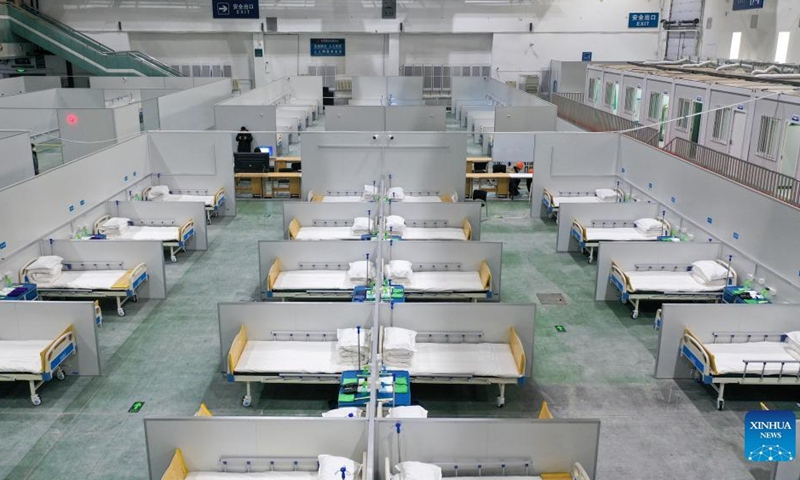
Aerial photo taken on March 15, 2022 shows the interior view of a temporary hospital for the COVID-19 patients in Changchun, capital of Northeast China's Jilin Province. Photo: Xinhua
It is risky for COVID-19 patients who are asymptomatic to stay home instead of in centralized quarantine, as they might cause further transmission and miss the optimal treatment period, said Wu Zunyou, chief epidemiologist at the Chinese Center for Disease Control and Prevention.
When Shanghai fought a tough battle against the Omicron variant at an earlier stage, some health experts called for exploring the feasibility of home quarantine as a possible way to deal with the outbreak. This approach triggered a heated debated online.
Wu believes the suggestion is risky considering that some of the asymptomatic patients are in the incubation period of the virus.
"Failure to detect and treat their symptoms in a timely manner may result in the continued spread of the virus," said the top epidemiologist on Tuesday. "They may also miss the optimal treatment period."
Wu stressed that it is important to transfer the infected persons who are asymptomatic or have mild symptoms to centralized isolation sites.
"Centralized isolation and observation can cut off cross-transmission and further spread and can provide treatment in time," he said.
Wu's comments were echoed by other epidemiologists in China who defended the centralized isolation treatment currently practiced.
Liang Wannian, head of the COVID-19 Expert Team of the National Health Commission (NHC), said at a press conference on Sunday that insisting on collective quarantine for mild and asymptomatic cases is necessary.
If people are isolated at home, facilities and equipment like sewers and ventilation systems always present a risk of transmission, Liang said, noting that collective quarantine ensures people's health and safety and is still necessary under the current situation.
More than 100 provisional hospitals for centralized quarantine, with more than 160,000 beds, have been built in Shanghai in the past month. Every provincial-level region in China should build at least two or three provisional hospitals, Jiao Yahui, Director of Medical Administration Bureau of the NHC, said at a press conference on March 22.




